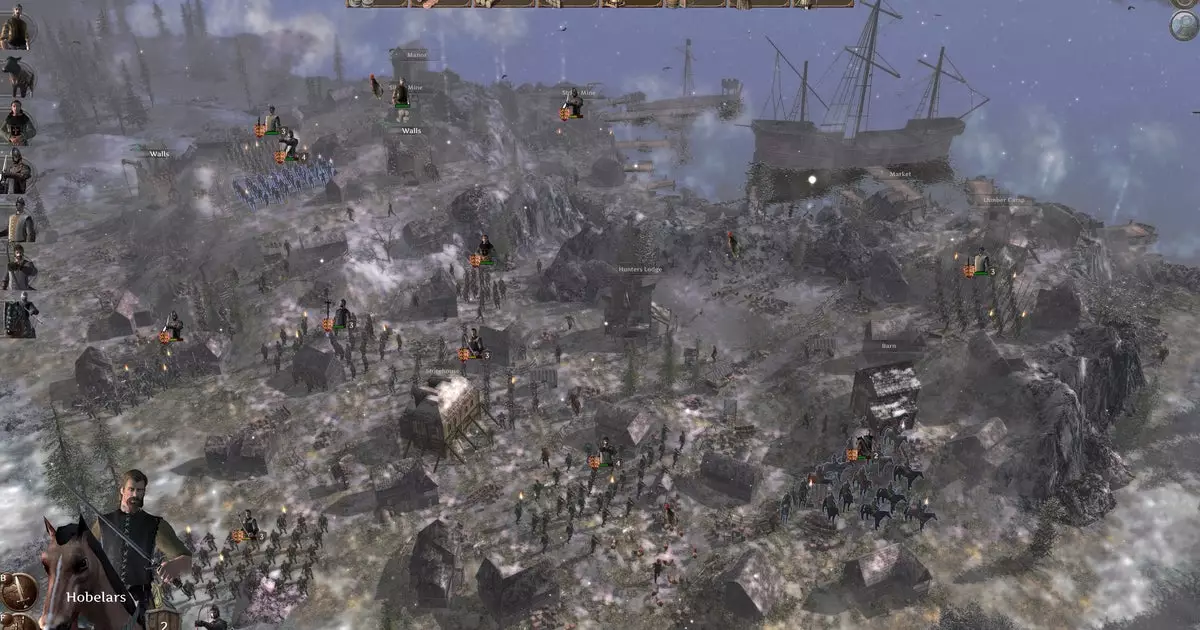The Crusades stand as one of history’s most enigmatic and controversial themes, often relegated to brief soundbites in classrooms or idealized portrayals in video games. These medieval religious wars, initiated by the Latin Christian Church in response to the Arab conquest of Jerusalem, have morphed into a modern meme, invoked by a variety of groups to paint different narratives. Terms like “deus vult” have been tossed around with reckless abandon, stripping the conflict of its profound historical complexity and reducing it to fodder for glorified imaginings of valiant knights and the righteous battles they fought. However, true understanding of the Crusades demands more than surface-level engagement; it requires examining the layered motives, diverse actors, and brutal realities that characterized these campaigns.
Evocative Cultural Inheritances
While video games like “Knights Of The Crusades” attempt to bridge the gap between entertainment and education regarding this period, they risk glamorizing violence and fanaticism. The notion of tackling this historical saga through a strategic 4X game structure is intriguing, offering players the chance to engage with the complexities of religious zeal, territorial ambition, and cultural clash. Unlike mere escapism, this format could serve as a vessel for nuanced discussions around the influence of these events on contemporary identities. Yet, therein lies the danger: can such representations ever truly capture the essence of a time plagued by moral ambiguity?
Game developers from the “Kingdom Wars” series have chosen an ambitious path, hinting at an overarching narrative that navigates through the wasteland of historical interpretation while challenging players to confront their actions within the game. The pledges of introducing unique mechanics and culturally-specific factions offer a rich tapestry for immersion, yet they must tread carefully to avoid oversimplification or glorification of conquest. If done right, the game might stimulate critical reflection on the imprints of the Crusades in today’s socio-political landscape.
The Moral Landscape of the Crusades
In examining the potential of “Knights Of The Crusades,” one must ponder the further implications of creating spaces for players to enact historical strategies akin to those of Richard the Lionheart or Saladin. Within this virtual framework, there lies an opportunity to question the righteousness often attributed to such figures. While the game promises agency—allowing players to shape a world that reacts to their in-game choices—the ramifications of such power can be unsettling. If players engage carelessly, they risk echoing the very pitfalls that plagued the Crusaders themselves: the temptation to see the conflict in black-and-white terms, devoid of the multifaceted moral quandaries that defined historical events.
Furthermore, in pondering how this game may inadvertently take part in historical revisionism, one must challenge the portrayal of violence as a legitimate tool for retribution or divine sanction. The potential exist for players to revel in the power of “raiding hamlets and putting innocents to the sword,” yet such triumphs become disconcerting when viewed through the lens of history. This raises questions: Are modern gamers equipped to distinguish between gameplay fantasy and historical reality? Can a game contextualize the grisly outcomes of blind fanaticism while still delivering an engaging narrative?
Democratizing History through Interactive Mediums
As thrilling as it is to contemplate the ways new media can explore historical narratives, there is an ethical responsibility carried by developers and artists alike. The creators of “Knights Of The Crusades” face a critical challenge: they must walk the tightrope between entertainment and sensitivity to the impact of the events they portray. By fostering an environment that generates critical discourse rather than glorifying violence, there lies the potential for a meaningful interactivity that invites players to reflect, learn, and grapple with the weight of history.
Gamers and historians alike must embrace this opportunity—not merely to consume narratives but to engage actively in the historical discourse surrounding the Crusades. They should seek out diverse perspectives, explore various mediums, and partake in dialogues about the lasting influences of such conflicts in contemporary society. Amid the chaos of broad-brush simplifications, it is crucial to maintain a commitment to understanding the nuances and complexities that shaped the events of the past, lest they be repeated in new and troubling forms. As society continues to grapple with the legacies of these dramatic historical encounters, the stories told in games like “Knights Of The Crusades” will resonate, making the imperative for thoughtful engagement all the more urgent.

